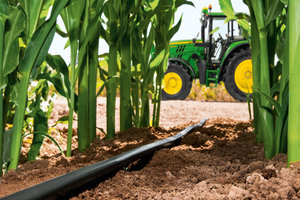According to recent research from a team of agronomists, entomologists, agroecologists, horticulturists and biogeochemists from Penn State's College of Agricultural Sciences, planting cover crops in rotation between cash crops can offer even more ecological value than previously thought.
The research, which was published in the March issue of Agricultural Systems, measured the benefits of planted cover crops across more than 10 ecosystem services. The largest benefits gleaned from the results included higher levels of carbon and nitrogen in soils, erosion prevention, development of beneficial soil fungus, and weed suppression.
Meagan Schipanski, lead researcher and postdoctoral scholar at Penn State, said, “Nutrient-retention benefits occur primarily during cover crop growth, weed-suppression benefits occur during cash-crop growth through a cover crop legacy effect, and soil-carbon benefits accrue slowly over decades. By integrating a suite of ecosystem services into a unified analytical framework, we highlighted the potential for cover crops to influence a wide array of ecosystem services. We estimated that cover crops increased eight of 11 ecosystem services. In addition, we demonstrated the importance of considering temporal dynamics when assessing management system effects on ecosystem services."
The research simulated a three-year, soybean-wheat-corn rotation with and without cover crops in central Pennsylvania. The cover crop rotation included red clover, frost-seeded into winter wheat in March, and winter rye, planted after corn was harvested in the fall.
Despite proven benefits, many farmers have not planted cover crops due to the lack of financial incentives to do so, which is largely due to traditional methods of calculating the economic benefits of cover crops over a short period of time. Penn State’s research attempts to prove the ecological benefits that cover crop planting can offer.
